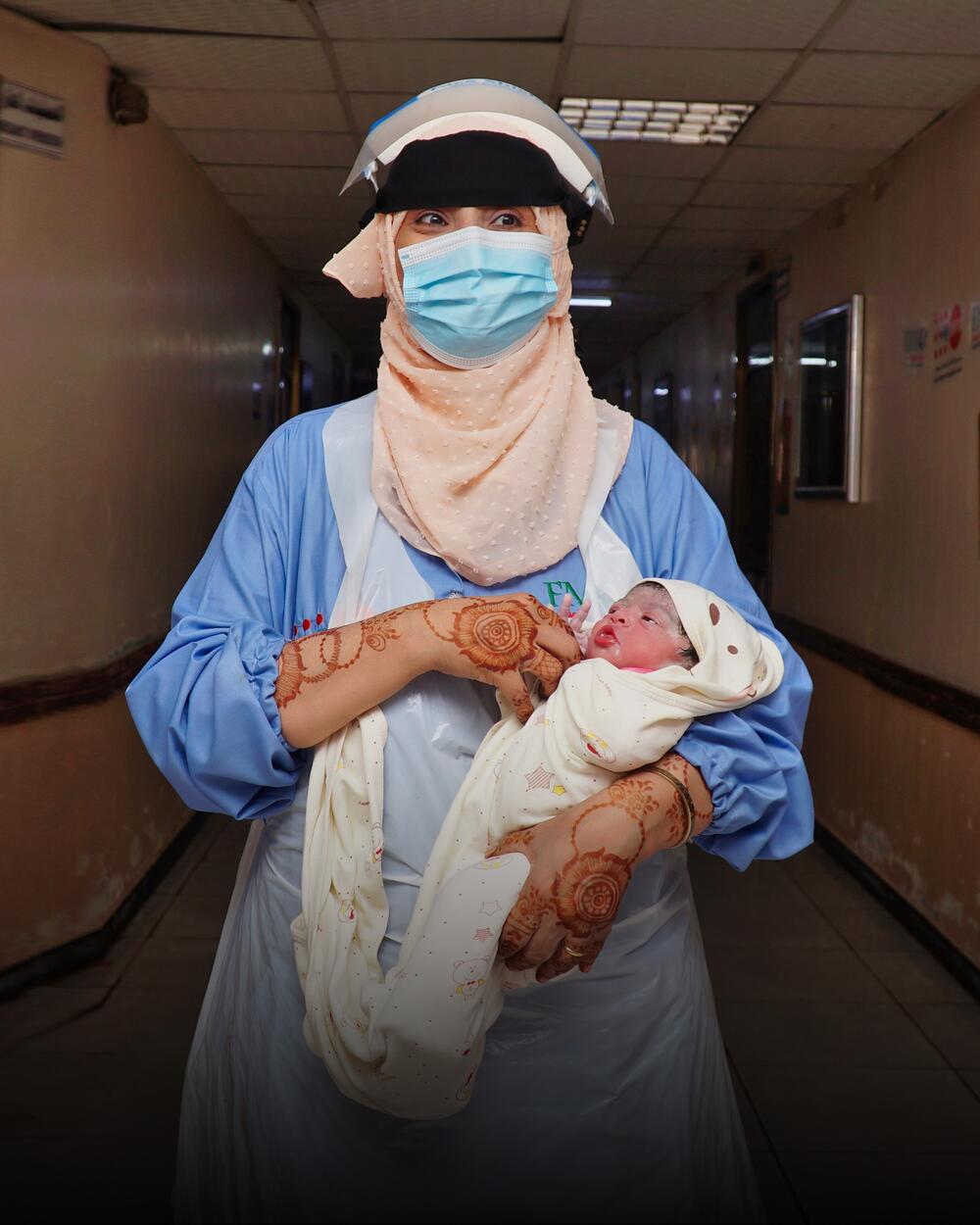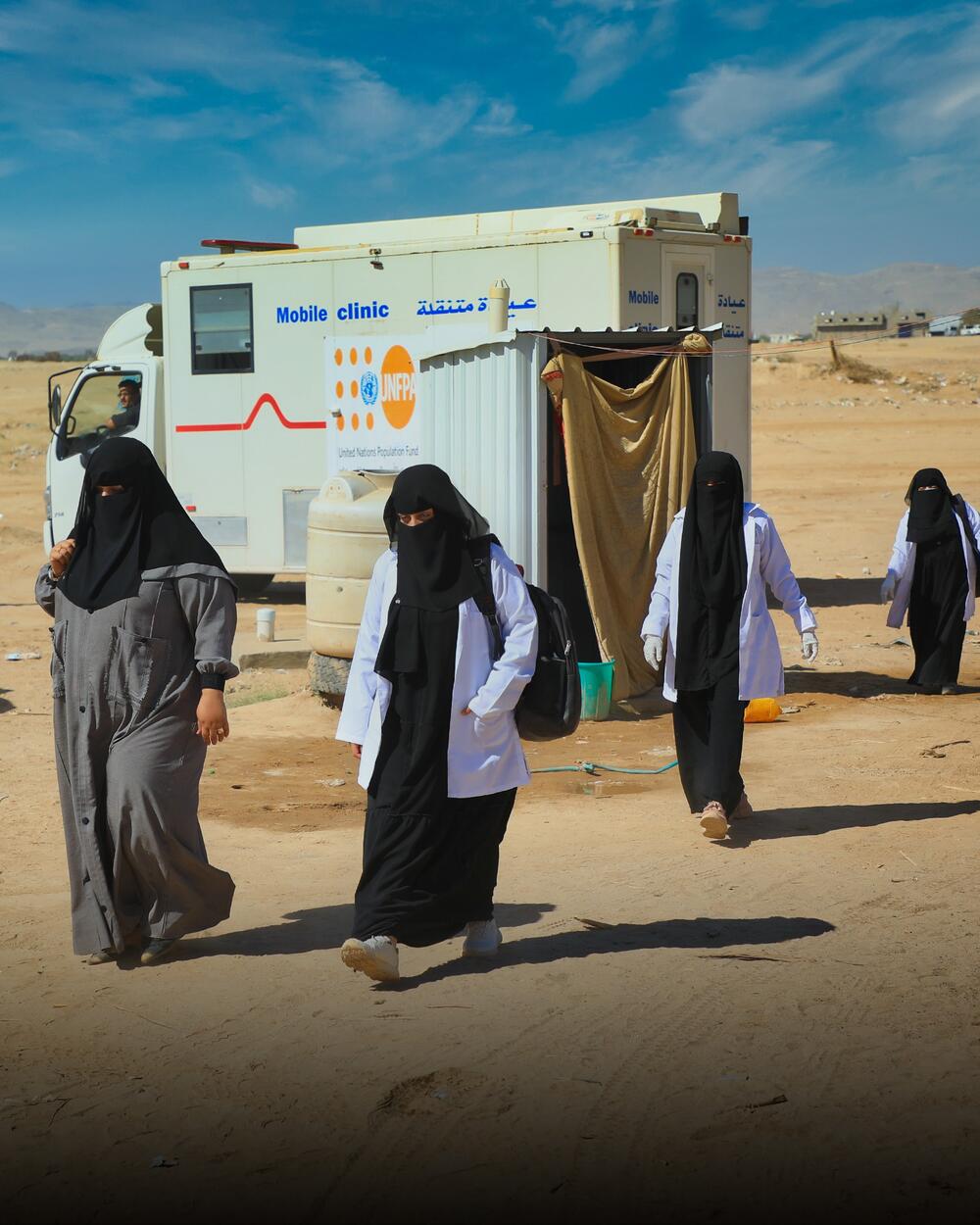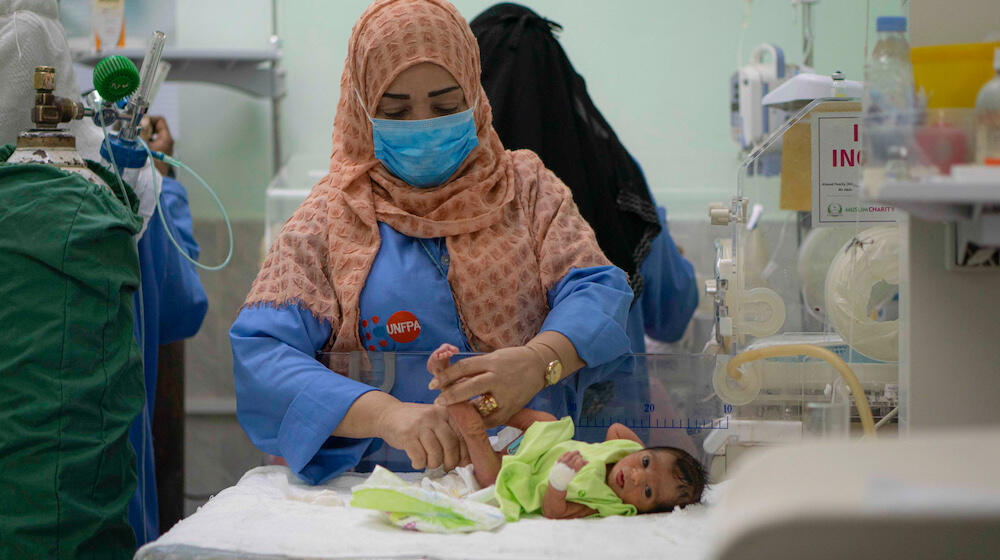DHAMAR, Yemen – “If we get some food, we first let our children eat.” Zahra, 30, is a mother of four from the village of Wusab Al Safil in Yemen’s Dhamar Governorate.
Eight years ago, as the war escalated dramatically and health facilities were barely functioning or standing due to violence and insecurity, Zahra went into early labour with her third child. She was acutely malnourished – a dangerous condition that affects some 1.5 million pregnant and breastfeeding women in Yemen – and without any health staff to support the premature delivery, her situation was life-threatening.
Amid drawn-out, grinding conflict, economic collapse and soaring food prices, Yemen is one of the world’s deepest and most entrenched humanitarian crises. In 2023, an alarming 21.6 million people need humanitarian assistance, 80 per cent of the population can’t put food on the table and even the most basic health care is widely unavailable.
Both Zahra and her baby survived but the child suffers from congenital heart disease. When she fell pregnant a fourth time, she was again acutely malnourished and underweight, her body growing increasingly weak and prone to diseases. One morning she collapsed with abdominal pain and bleeding, and her husband, Anwar, rushed her to a nearby but poorly equipped clinic.
She was advised to have an ultrasound to check for further complications, but the family had no means to pay for one. A nurse then told her about the Al Ahad Hospital, which was offering free reproductive health services. “I was so relieved,” said Anwar. “Yet I had no money to afford a car to travel to the hospital.”
Anwar and a heavily pregnant Zahra decided to walk the seven hours to reach the facility.
A maternal health crisis
The Al Ahad hospital is supported by UNFPA with funding from the European Union and provides free reproductive health services such as ultrasounds, clinical tests and laboratory examinations. The medical team treated Zahra’s malnutrition, performed the ultrasound and helped to safely deliver her baby.

Some 5.5 million women and girls of childbearing age in Yemen have limited or no access to reproductive health services, and one woman dies during pregnancy and childbirth every two hours. This is among the highest rates in the region and a figure all the more harrowing as the causes would be almost entirely preventable with access to health services.
For women and girls the crisis is taking an unbearable toll: Fewer than half of births are attended by skilled medical personnel, and only one in five of the health facilities that remain can provide maternal and neonatal care.
A fight for survival
Hayat Ahmed Saleh, 32, was also undernourished throughout her first two pregnancies and suffers from severe anaemia, a result of poor nourishment and a leading cause of maternal deaths.
Ms. Saleh, from the Al-Suqya district in the Lahj Governorate, couldn’t afford to hire a car to go to a health facility – the closest was 40 kilometres away – or to pay for health care. Both times she went into early labour at home, attended by an unskilled birth attendant; neither of the babies survived.
“I was determined to have a child. I didn’t want to give up,” Ms. Saleh told UNFPA. She had heard about the Al Ara rural hospital, which is supported by UNFPA and KSrelief and offers free reproductive health services.
“When I heard about the hospital and that there were specialized staff with trained midwives, I decided to walk there and explain my situation.”
The doctor advised her to visit the hospital for frequent tests and check-ups during her pregnancy, and to follow up every week after she reached six months. Ms. Saleh finally gave birth to a healthy baby boy, and told UNFPA, “When I was ready to give birth I was nervous but confident, because I was in the hands of specialists inside a health facility, which I never thought was possible.”
An appeal for the future of women and girls
Humanitarian crises and conflict globally are obstructing many countries' efforts to reduce maternal deaths, challenges that climate change and a lack of skilled midwives have only exacerbated.

2022 ended with a measure of hope and a glimpse of what the future could hold for the women and girls of Yemen – but any gains are fragile. UNFPA is still the only organization providing life-saving reproductive health medicines in hospitals, at camps for internally displaced people and through mobile clinics. Yet chronic underfunding is throwing this care into peril, and more than 90 health-care facilities may be forced to close if funds cannot be secured.
Despite this precarious situation, UNFPA was able to reach more than 2.7 million women and girls in Yemen in 2022 and prioritize their rights and access to services that are vital to their health and well-being.
For 2023, UNFPA is appealing for $70 million to reach 3.9 million people in Yemen. The support focuses on reproductive health, including emergency obstetric and neonatal care to reduce maternal mortality and morbidity; gender-based violence protection services for women and girls; and emergency life-saving packages for people newly displaced by ongoing insecurity.


